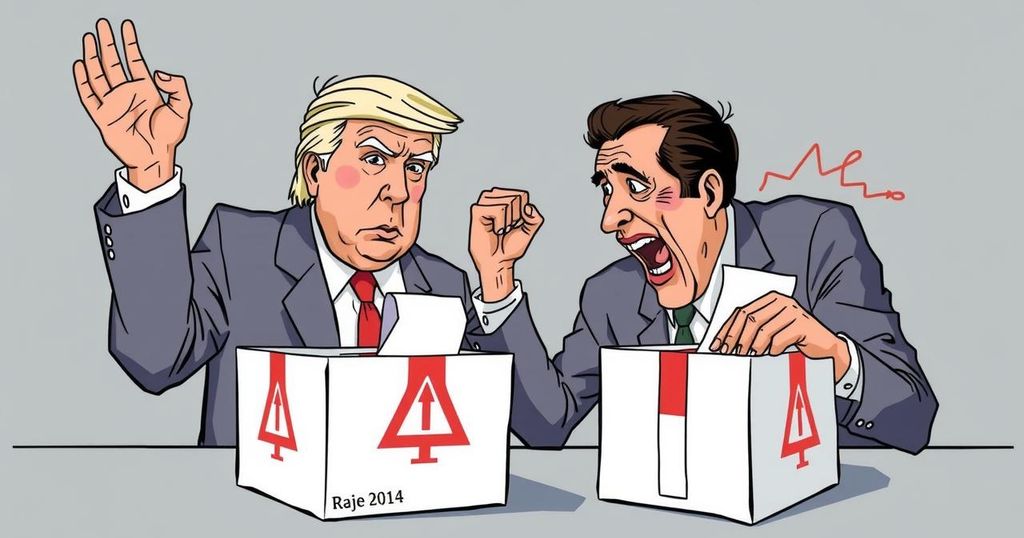2024: A Year of Political Frustration and Change

In 2024, over 60 countries held elections, revealing a unified theme of political frustration as incumbents faced backlash and new leaders emerged from diverse political backgrounds. Economic discontent, particularly due to inflation, fueled a shift towards populism across the globe, with significant events in the US, Iran, India, and the UK epitomizing this trend.
In 2024, over 60 nations representing more than 40% of the global populace participated in elections, yielding a notable political narrative characterized by incumbent punishment and the rise of new players. The elections reflected widespread political discontent, particularly evident in the United States where Donald Trump reclaimed the presidency amidst a backdrop of economic frustrations, including inflation. This anti-establishment sentiment was echoed globally; for instance, in Iran, reformist Masoud Pezeshkian triumphed over conservative opponents, signaling a shift in voter priorities. Simultaneously, the United Kingdom witnessed Keir Starmer’s Labour Party return to power, effectively concluding 14 years of Conservative governance.
Moreover, even incumbents faced significant challenges. Prime Minister Narendra Modi in India secured another term but only with coalition support, highlighting a turn towards shared governance. Similarly, South Africa’s African National Congress lost its parliamentary majority for the first time since apartheid, reflecting a broader trend of discontent with mainstream parties. The elections underscored not only economic grievances but also a varying ideological landscape wherein populism gained traction across the political spectrum, both left and right. Overall, the unifying theme of 2024’s elections was a strong rejection of the status quo across diverse political landscapes.
The political landscape of 2024 was shaped by elections in various countries, where a noticeable rise in anti-incumbent sentiment emerged due to widespread economic discontent, particularly linked to inflation and a perceived failure of existing leaders to address pressing national issues. Amidst this backdrop, new political movements gained momentum, pushing previously marginalized perspectives into the mainstream. The global elections provided a scope to analyze how voters responded to challenges in governance and their aspirations for change amidst a complex political landscape.
The elections of 2024 highlighted a global wave of political frustration, marked by a significant anti-incumbent sentiment and the rise of both leftist and right-wing populist figures. Major elections, including those in the United States, Iran, India, and the UK, showcased how voters, driven by economic distress and ideological disillusionment, sought change. This year underscores a transformative moment in global politics where traditional power dynamics are increasingly contested, reflecting a profound desire amongst electorates for new leadership and innovative solutions.
Original Source: foreignpolicy.com







